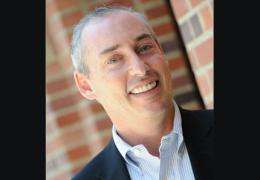Golden State: Yes, No or Maybe?

(PhysOrg.com) -- Dan Schnur, director of the College's Jesse M. Unruh Institute of Politics, analyzes the findings from the first of six USC College of Letters, Arts & Sciences/Los Angeles Times statewide public opinion polls.
Sometimes it's better to light a candle; sometimes it feels better to curse the darkness. But California voters seem to be willing to simply sit in the dark -- with neither curses nor candles -- increasingly convinced that the light at the end of the tunnel is still a long way off and increasingly uncertain that their state’s leaders can get them there.
Californians are unhappy, according to the inaugural USC College of Letters, Arts & Sciences/Los Angeles Times statewide public opinion poll. But unlike voters in other parts of the country, where voters are furious at their elected representatives and willing to vent that rage toward anyone and anything that wanders into their cross-hairs, residents of what they no longer consider to be a Golden State are less angry than depressed, disappointed in their political leaders and doubtful that a range of prescribed policy solutions will have much impact on the state’s budgetary and economic problems.
The poll showed that fully 80 percent of California registered voters believe the state is headed in the wrong direction, the highest reported level since immediately before the 2003 recall election. But what’s most noticeable about these results is the lack of emotional energy behind them. The wrath that voters exhibit in other states is barely noticeable here, replaced by a quiet resignation and despondence as to their state’s future.
One reason for this may be that we tried anger not too long ago: the recall election gave Californians a chance to vent their outrage in a very tangible and visceral way. But six years later, the candidate who brandished a broom on the steps of the state capitol vowing to sweep out the special interests is a year away from leaving office without a noticeable difference in the way in which state politics and governance are conducted. While Schwarzenegger can rightly point to substantial achievements in the areas of workers compensation, environmental protection, redistricting and most recently, water policy, the public still feels largely shut out from the process. Indeed, 24 percent of respondents said that the influence of special interests was the primary reason for the state’s decline, outpaced only by those who believe that state government overspending is the worst culprit.
As the field of candidates who will vie to replace Schwarzenegger begins to take shape, Californians are doubtful that a new governor can bring about necessary change. The overall electorate was almost exactly evenly split on this question, while the self-described independent voters who decide most state elections here are convinced that Schwarzenegger’s successor will be unable to make a significant difference by a sizable margin.
At this early stage of the race, Attorney General Jerry Brown has benefited from high approval ratings, almost total name recognition, and perhaps most importantly, the possibility of an uncontested path to the Democratic nomination after San Francisco Mayor Gavin Newsom’s recent decision to leave the race. This will allow Brown to marshal his resources, raise great sums of money, and begin to position himself toward the political center while the Republican contestants throw javelins at each other over the next several months. While many candidates would benefit from the seasoning of a primary campaign to better prepare for a general election, an experienced politician like Brown is probably less in need of spring training in order to prepare for next fall’s general election.
The three Republican candidates, former Congressman Tom Campbell, State Insurance Commissioner Steve Poizner, and former E-Bay CEO Meg Whitman are still relatively unknown at this point. The nominee who emerges will almost certainly have overcome that challenge, but another potential difficulty exists for any of the three as they attempt to navigate the tricky waters of a GOP primary. All three combine a fundamentally conservative approach to economic and public safety issues with a more moderate grounding on social and cultural matters. For the last twenty years, this is the ideological mix that has been required to elect Republicans to the governor’s office. But the party’s activist base leans heavily to the right on abortion, stem cell research and other socially-charges issues, and it is only the financial resources that Poizner and Whitman bring to the campaign that have discouraged a more traditional culturally conservative candidate to join the race. All three candidates will strongly emphasize their economic agendas, but the question remains whether unmotivated GOP regulars will turn out in great numbers in the fall. One year before the next election, Brown should be considered an early front-runner. But his challenge, like that of his Republican opponents, will be to light a fire under California voters who feel like they’ve been burned far too many times in the past.
Provided by USC College















